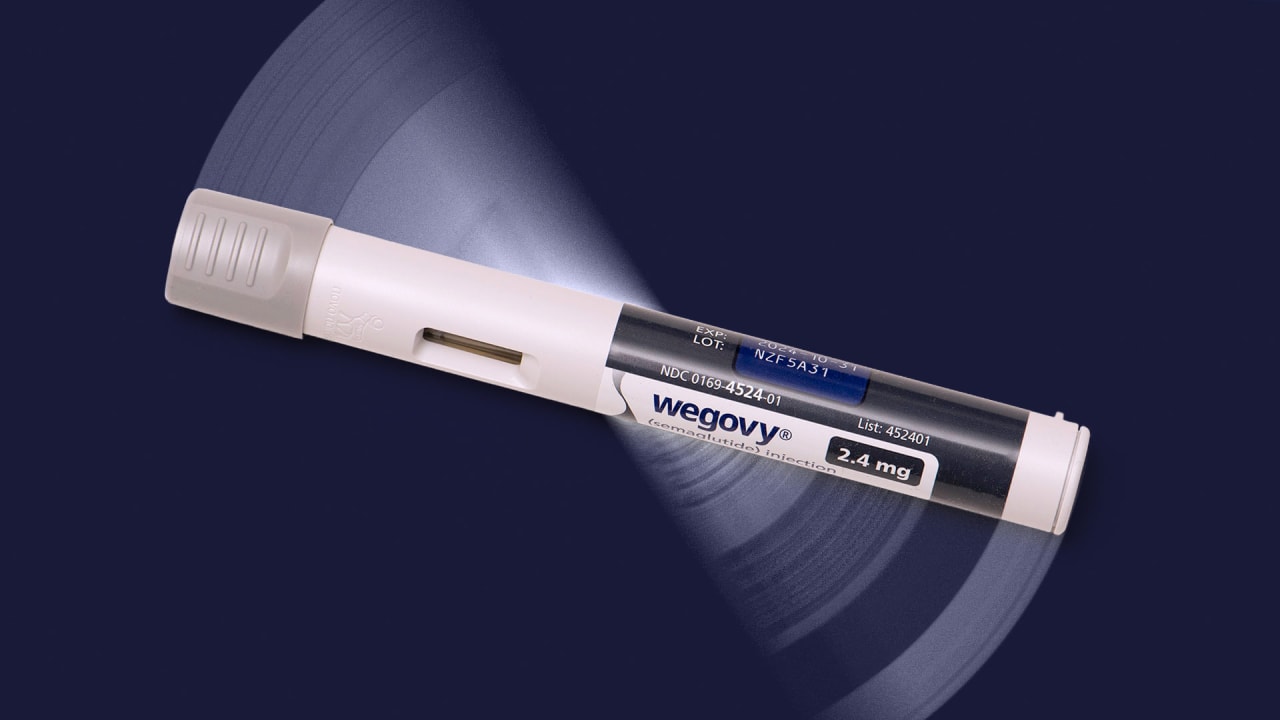25,000 people begin taking Wegovy each week, but Novo Nordisk stock is sinking anyway
Danish drugmaker Novo Nordisk, the creator of Ozempic and Wegovy, announced a shocking statistic Thursday: Over 25,000 people begin Wegovy each week. The number is five times larger than the numbers from December—about 5,000 new users a week. The company went on to boast a 22% sales increase in its first-quarter earnings report Thursday, outperforming analysts’ expectations and bringing in about $9.4 billion in net sales. Sales of Ozempic rose 42%, while Wegovy’s skyrocketed 106%. Novo Nordisk has raised its outlook for 2024, expecting sales growth to fall between 19% and 27%. But while Wegovy sales more than doubled to $1.35 billion in the first quarter, the results still fell 11% short of analysts’ expectations, causing Novo Nordisk’s stock price to dip 3.23% to $125.13 in Thursday afternoon trading. This shortfall can be attributed to increased volumes and lower prices, with net pricing like-for-like down in the United States, the company’s chief financial officer, Karsten Munk Knudsen, told analysts on a call. The trend will likely continue through the rest of the year, he said. Price pressure and competition Lower prices come as the company faces increased competition from rivals such as drugmaker Eli Lilly, the creator of the weight loss drug Mounjaro. While Novo Nordisk occupies more than 50% of the market for glucagon-like peptide 1 (GLP-1) drugs—about a 55.3% share—Eli Lilly continues to increase pressure, reporting profits on Tuesday that beat analysts’ expectations and posting a net income of $2.24 billion. Both drugmakers are struggling to keep up with rising demand in the face of supply shortages, with Novo Nordisk increasing production as three Wegovy dose strengths are currently listed as “limited availability” on the website of the Food and Drug Administration (FDA). To continue to meet increasing demand for these drugs, Eli Lilly has increased its manufacturing capacity, raising its annual sales forecast by $2 billion, while Novo shelled out $11 billion to buy three plants in Italy in February. Looking forward, Wegovy has now also been approved in the U.S. for cardiovascular risk reduction in people who are overweight or obese and have an established cardiovascular disease.

Danish drugmaker Novo Nordisk, the creator of Ozempic and Wegovy, announced a shocking statistic Thursday: Over 25,000 people begin Wegovy each week. The number is five times larger than the numbers from December—about 5,000 new users a week.
The company went on to boast a 22% sales increase in its first-quarter earnings report Thursday, outperforming analysts’ expectations and bringing in about $9.4 billion in net sales. Sales of Ozempic rose 42%, while Wegovy’s skyrocketed 106%.
Novo Nordisk has raised its outlook for 2024, expecting sales growth to fall between 19% and 27%.
But while Wegovy sales more than doubled to $1.35 billion in the first quarter, the results still fell 11% short of analysts’ expectations, causing Novo Nordisk’s stock price to dip 3.23% to $125.13 in Thursday afternoon trading.
This shortfall can be attributed to increased volumes and lower prices, with net pricing like-for-like down in the United States, the company’s chief financial officer, Karsten Munk Knudsen, told analysts on a call. The trend will likely continue through the rest of the year, he said.
Price pressure and competition
Lower prices come as the company faces increased competition from rivals such as drugmaker Eli Lilly, the creator of the weight loss drug Mounjaro.
While Novo Nordisk occupies more than 50% of the market for glucagon-like peptide 1 (GLP-1) drugs—about a 55.3% share—Eli Lilly continues to increase pressure, reporting profits on Tuesday that beat analysts’ expectations and posting a net income of $2.24 billion.
Both drugmakers are struggling to keep up with rising demand in the face of supply shortages, with Novo Nordisk increasing production as three Wegovy dose strengths are currently listed as “limited availability” on the website of the Food and Drug Administration (FDA).
To continue to meet increasing demand for these drugs, Eli Lilly has increased its manufacturing capacity, raising its annual sales forecast by $2 billion, while Novo shelled out $11 billion to buy three plants in Italy in February.
Looking forward, Wegovy has now also been approved in the U.S. for cardiovascular risk reduction in people who are overweight or obese and have an established cardiovascular disease.






















